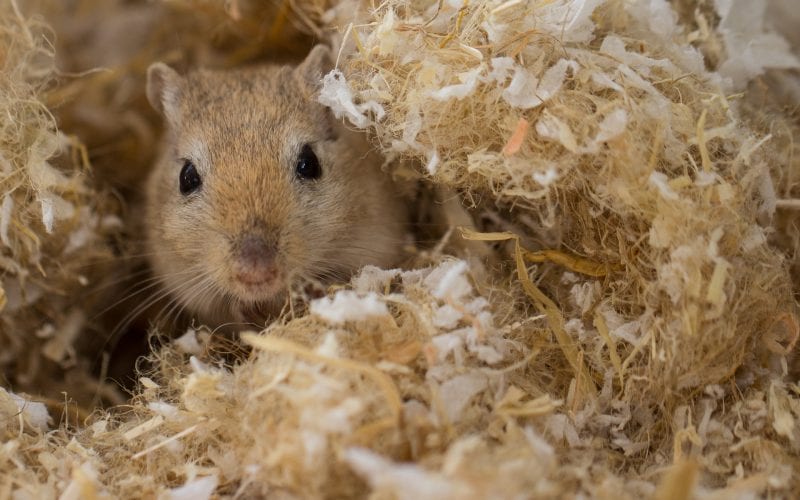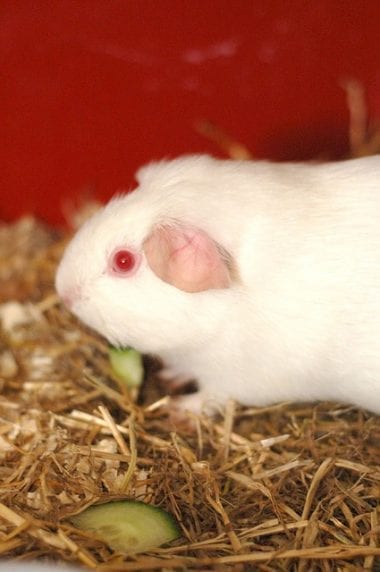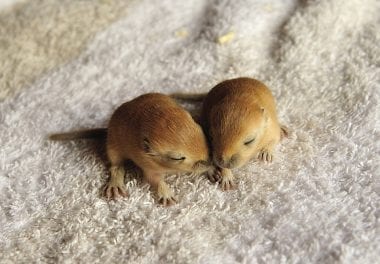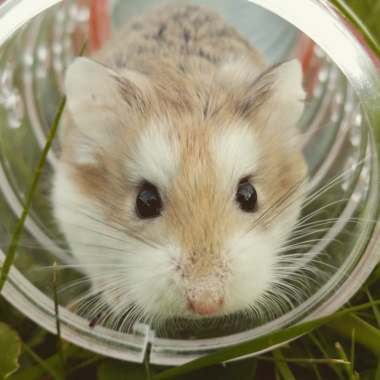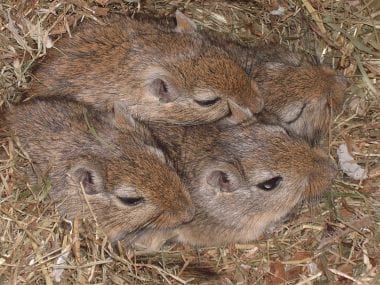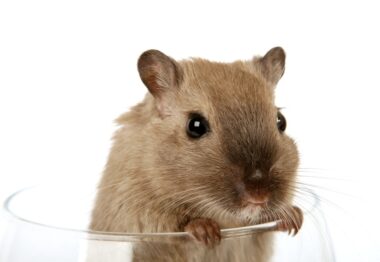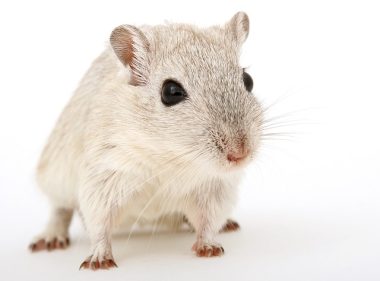Once known as desert rats, the Gerbil is a small mammal belonging to the subfamily Gerbillinae of the Rodentia order.
The Gerbil, a burrowing muse like a rodent, has a subfamily extending into 110 species of Asian, Indian & African rodents and generally found in the deserts of Asia & Africa. They also include jirds & sand rats, all mammals accustomed to dry natural surroundings.
The Gerbils belong to the Muridae family and are related to rats & mice. The Gerbils mostly are omnivorous species & usually active during the daytime except for some species similar to household pets which become active with darkness.
The Gerbil’s usual body length from head to tail ranges between 150 and 300 mm (6 to 12 inches), of which half of the total body length is taken up by the tail. An adult Gerbil generally weighs around 70 grams (2 ½ ounces).
Gerbils are sociable animals & reside in the wilderness in groups. Gerbils have a good sense of smell & identify their fellow gerbils through the familiar smell. They are also known to attack & kill those found with an unknown or unfamiliar smell.
Gerbils Turn as a Pet:
Dr. Victor Schwentker was the person responsible for acquiring & recognizing the potential of the Gerbil as a domesticated pet. Imported in 1954 as laboratory animals to the U.S, the Mongolian Gerbil (Meriones unguiculatus), became popular as pet by the late 1950s. The popularity soon spread to the United Kingdom by 1964 & are currently found at almost all pet shops in the US & the UK.
The Gerbils can burrow into the ground & damage the ecosystem & prevailing agricultural harvests, hence it is considered a threat. Due to this threat, it is illegal & banned in the U.S state of California & New Zealand too disallowing anyone from buying or keeping the Gerbil as a pet.
A Home for Gerbils:
Gerbils are different from mice & hamsters even though they slightly look alike. Most folks think that similar plastic/metal live in housing meant for hamsters & mice will work for pet Gerbils too. But it’s not as Gerbils would not prefer to stay in tunnel systems created for them but in digging & creating the tunnel, which they call home.
Family Way:
Mating of Gerbils takes some time, initially in short ruptures in pursuing the female Gerbil till it allows the male Gerbil to catch her. Once caught the female Gerbil initiates jerky motions while squeaking loudly to dislodge the male Gerbil. Gerbils are peaceful species & rarely known to attack each other whether male or female.
Gerbils Popularity as a Pet:
There are various reasons for Gerbil’s popularity as a household pet. One of the main reasons is that they being peaceful, non-aggressive animals. The other reason is that they are never known to bite unless tormented & provoked. Gerbils are small, cuddly & easy to handle animals. Due to their sociable nature, the Gerbils too enjoy the company of humans & are happy to be taken care of in the company of fellow Gerbils.
Gerbils with their small size have adapted their kidneys accordingly in producing less toxic waste & in conserving body fluids, which helps them remain clean with very little odor.
How to Scrub out a Gerbils cage & Bedding:
Gerbils have to be cleansed properly along with their tank & bedding to keep them healthy & hygienic even though they don’t smell as much as other rodents. You can start by keeping the Gerbil spot clean on an everyday basis along with removing dirt on the bedding, freshening up the water bottle & food bowl in the tank. A part of the Gerbils bedding is to be replaced once a week along with clean-up of the interiors of the tank. Full replacement of beddings along with interior washing & disinfecting of the tank should take place every 3-4 weeks to avoid odor & built up of bacteria.
How Regularly Should You Clean the Gerbils Cage?

Gerbils unlike other animals don’t smell much & are considered one of the most hygienic pets. Since they come from desert climates Gerbils are used to conserving moisture in their body to the maximum. That is why they don’t urinate much & their droppings are quite dry. Due to this, the Gerbils can go for many weeks with very little care given to their cage before it starts smelling.
Since Gerbils rely on their scent glands in marking their areas & in distinguishing the male & female scent trials it is advisable not to clean out a Gerbil cage too frequently. A frequent clean out can wash out the scent trails which the Gerbils are looking for & might lead to stress.
When to Clean?
Cleaning of the Gerbil cage depends on:
- It depends on the number of Gerbils in a cage. The more the number of Gerbils means more urine & poop leading to frequent cleansing of the cage.
- It depends on the quality of the bedding. Some professional bedding is made to disguise odors related to poop & pee, while the normal shredded paper does not help cover-up on that smell or odor.
- Cleaning will also vary depending on the type of cage. Bigger & well-ventilated cages will help in decreasing the smell of the enclosure in a period of time.
- It depends on the individuality of the Gerbil. Some Gerbils are very neat & take care that they poop & urinate in one place. While some Gerbils are dirty due to their downward showdown in maintaining their hygienic surroundings.
Replacing the Bedding of the Cage:
Ensure a clean & dry Gerbil surrounding before placing new bedding substrates inside. Help the Gerbils in making more sturdy tunnels in their homes by adding some hay along with the dust-free substrates.
Replacing the Accessories of the Cage:
Ensure that no chemical effects are present in the Gerbils cage before replacing them. Put back the clean food bowl, sand baths, shelving, etc. into the cage. Along with that add new toys such as wooden blocks, cardboard tubes & keep them hidden in the substrates for the Gerbils to locate & chew. Once the cage is properly restacked & in order then deposit the Gerbils back into the clean & sanitized surrounding. The initial excitement of the Gerbils on re-entering the clean cage would be of checking around & digging tunnels while some might also try to rearrange the furniture.
Due to the destroyed tunnels & no earlier scent trials, post-cleansing, the Gerbils would fail to understand their surroundings & might become edgy or stressed out for some time. This however disappears in some time & the Gerbils become peaceful once they get used to the new & clean surroundings.
The Gerbils are sociable animals & should always remain in other Gerbils company when domesticated, never kept alone.
